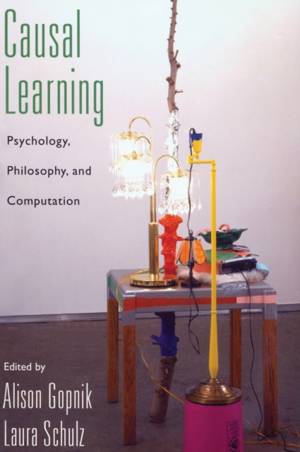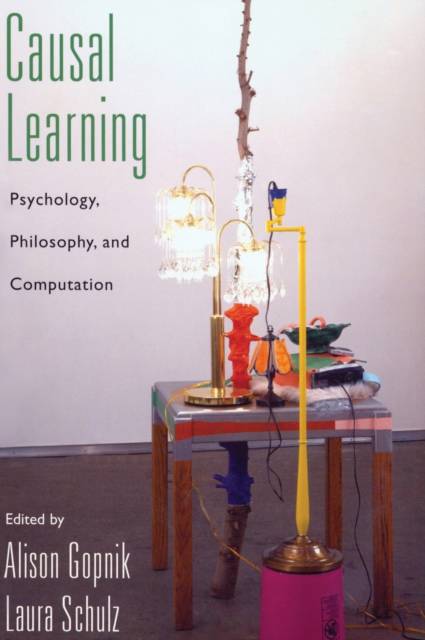
Door een staking bij bpost kan je online bestelling op dit moment iets langer onderweg zijn dan voorzien. Dringend iets nodig? Onze winkels ontvangen jou met open armen!
- Afhalen na 1 uur in een winkel met voorraad
- Gratis thuislevering in België vanaf € 30
- Ruim aanbod met 7 miljoen producten
Door een staking bij bpost kan je online bestelling op dit moment iets langer onderweg zijn dan voorzien. Dringend iets nodig? Onze winkels ontvangen jou met open armen!
- Afhalen na 1 uur in een winkel met voorraad
- Gratis thuislevering in België vanaf € 30
- Ruim aanbod met 7 miljoen producten
Zoeken
Causal Learning
Psychology, Philosophy, and Computation
€ 55,45
+ 110 punten
Omschrijving
Understanding causal structure is a central task of human cognition. Causal learning underpins the development of our concepts and categories, our intuitive theories, and our capacities for planning, imagination and inference. During the last few years, there has been an interdisciplinary revolution in our understanding of learning and reasoning: Researchers in philosophy, psychology, and computation have discovered new mechanisms for learning the causal structure of the world. This new work provides a rigorous, formal basis for theory theories of concepts and cognitive development, and moreover, the causal learning mechanisms it has uncovered go dramatically beyond the traditional mechanisms of both nativist theories, such as modularity theories, and empiricist ones, such as association or connectionism.
Specificaties
Betrokkenen
- Uitgeverij:
Inhoud
- Aantal bladzijden:
- 384
- Taal:
- Engels
- Reeks:
Eigenschappen
- Productcode (EAN):
- 9780195176803
- Verschijningsdatum:
- 22/03/2007
- Uitvoering:
- Hardcover
- Formaat:
- Genaaid
- Afmetingen:
- 254 mm x 183 mm
- Gewicht:
- 827 g

Alleen bij Standaard Boekhandel
+ 110 punten op je klantenkaart van Standaard Boekhandel
Beoordelingen
We publiceren alleen reviews die voldoen aan de voorwaarden voor reviews. Bekijk onze voorwaarden voor reviews.










